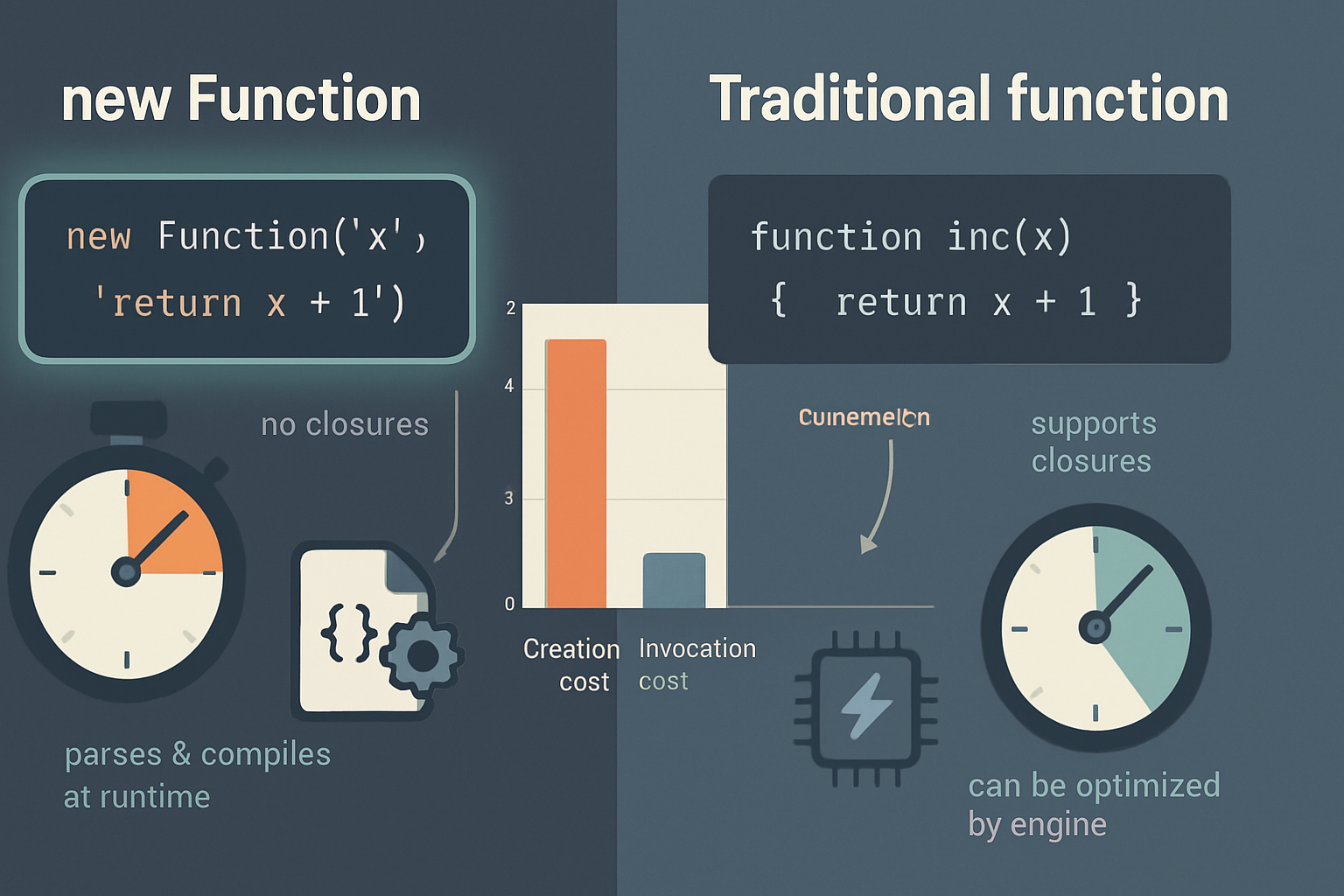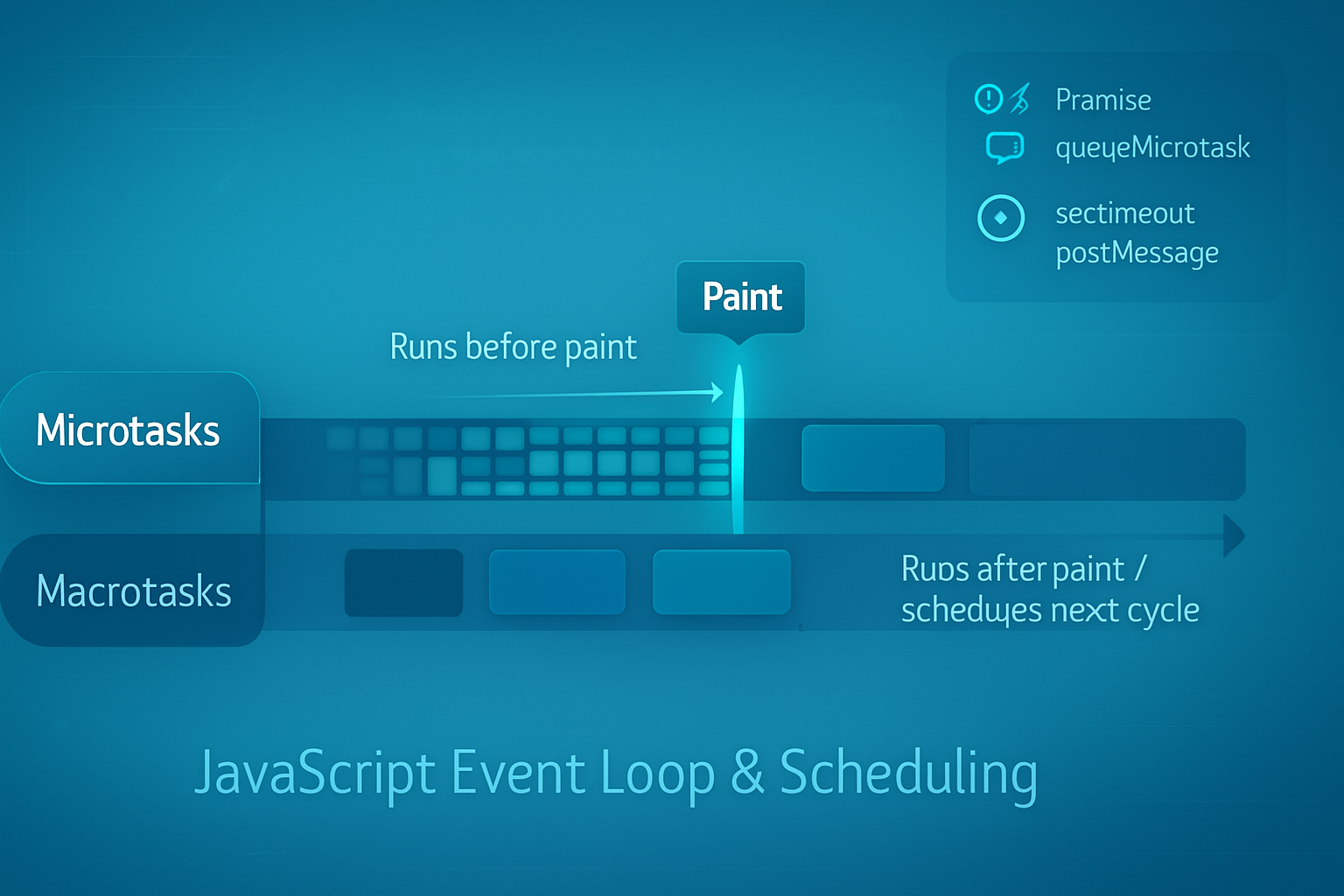· tips · 6 min read
Understanding JavaScript Regex Backtracking: A Double-Edged Sword
A deep look at how JavaScript's backtracking regex engine works, why certain patterns cause catastrophic slowdowns, and practical rewrites and tooling to avoid performance traps.
Why backtracking matters
Regular expressions are powerful - they let you express complex text matches succinctly. But under the hood, JavaScript’s RegExp engine uses a backtracking (NFA-style) approach. That makes many useful features possible (capture groups, backreferences, complex alternation), but it also means certain patterns can cause the engine to explore an enormous number of possibilities. The net result: a tiny pattern with a malicious or unfortunate input can take exponentially longer to resolve. This phenomenon is often called “catastrophic backtracking.”
If you’re building high-performance applications or accepting user input for regex matches, it’s critical to understand when and why backtracking becomes a liability - and how to avoid it.
A quick primer: how JavaScript’s regex engine works
- JavaScript’s RegExp engines are backtracking (NFA) engines. They try paths and, if a path fails, they back up (backtrack) and try alternatives.
- This is different from a DFA-based engine (no backtracking), which is guaranteed linear time in the length of the input.
- Backtracking enables constructs like backreferences and complex alternation, but it also introduces the potential for exponential time when the engine repeatedly explores overlapping possibilities.
For deeper reading about regex matching algorithms, see Russ Cox’s classic: “Regular Expression Matching Can Be Simple And Fast”: https://swtch.com/~rsc/regexp/.
A simple, concrete example of catastrophic backtracking
Consider this JavaScript example:
// Vulnerable regex
const re = /^(a+)+$/;
// Input that triggers catastrophic backtracking
const input = 'a'.repeat(30) + 'b';
console.time('test');
console.log(re.test(input)); // false
console.timeEnd('test');Why is this slow? The pattern (a+)+ has nested quantifiers. The inner a+ can match 1..n as and the outer (...)+ repeats that group. When the engine sees the final b that doesn’t match, it must backtrack and try many different ways to partition the sequence of as between the two quantifiers. The number of partitions grows exponentially with the number of as, so runtime explodes.
Try running the above with longer input (e.g., 100 as + b) and you’ll see the test time balloon from milliseconds to seconds or worse.
Common patterns that invite trouble
- Nested quantifiers:
(a+)+,(.+)+,((ab)*)+. - Ambiguous alternation where options overlap:
(a|aa)+- the engine must try different ways to matchavsaamany times. - Use of
.*or.+in combination with other quantified groups, especially near the end of the expression:^(.*a).*b-style patterns. - Backreferences combined with quantifiers:
(a+) \1patterns are often expensive.
If your pattern allows many different partitions of the same input and the engine must try most or all of them, performance will suffer.
Diagnosing backtracking problems
Reproduce: create a small script where you call
.test()or.exec()on progressively longer inputs and measure time withperformance.now()orconsole.time().Visualize: tools like regex101 (https://regex101.com/) show a step-by-step explanation and can highlight catastrophic backtracking cases for PCRE flavor (the explanations are helpful even if engine differs).
Profilers: run your app with a profiler (Chrome DevTools, Node Profiler) and look for hot spots inside RegExp operations.
Use known problematic inputs: sequences of the repeated character(s) your pattern is matching, plus a mismatching suffix such as an extra
bat the end.
Practical strategies to avoid catastrophic backtracking
Simplify nested quantifiers
Avoid constructs like
(something+)+or(.+)+. Often the intent is “one or more ofsomethingrepeated” which usually equalssomething+anyway. Example:- Vulnerable:
/^(a+)+$/ - Safe:
/^a+$/
- Vulnerable:
Prefer explicit bounds when appropriate
If you can bound repetition, do it.
{m,n}is much safer than unbounded+or*because it limits how many partitions the engine can try.// Instead of '(.+){1,}', if you really expect length limits: const safe = /^.{1,1000}$/; // restrict maximumOrder alternation from most specific to least specific
When alternatives overlap, put the longer/more specific option first. For example:
- Problem:
/(a|aa)+/- ambiguous, can lead to backtracking. - Better:
/(?:aa|a)+/- putaafirst so the engine picks long matches before shorter ones.
This reduces the number of failed attempts.
- Problem:
Avoid crazy
.*greediness near important boundariesPatterns like
^.*foo.*bar.*$can be safe in many cases, but if combined with alternation or nested quantifiers they can become problematic. Use more targeted character classes:[^\n]*or[^x]*when you know what characters you can skip.Use non-backtracking engines when needed (RE2)
If you must accept arbitrary user-supplied patterns or need absolute guarantees, use a non-backtracking engine such as Google RE2. RE2 guarantees linear-time execution for regular expression matching (no catastrophic backtracking). In Node, see the node-re2 binding: https://github.com/uhop/node-re2 and RE2 project: https://github.com/google/re2.
Replace some regexes with manual parsing
For some complex tasks, a tiny parser or a few
indexOfcalls are faster and safer than a complex regex. Example: validate an IPv4 address by splitting on.and checking numeric ranges rather than a monstrous regex.Use lookaheads carefully to reduce backtracking (with caution)
JavaScript lacks atomic grouping
(?>(...))and possessive quantifiers like++, so you can’t directly disable backtracking for a group. In some scenarios, carefully designed lookaheads can reduce backtracking, but they’re tricky and can be hard to reason about. Often a simpler rewrite or a non-backtracking engine is preferable.Test and benchmark
Measure before and after any change. Here’s a minimal benchmark harness you can use in Node or the browser:
const { performance } = require('perf_hooks'); // Node function timeTest(re, input, runs = 10) { const start = performance.now(); for (let i = 0; i < runs; i++) re.test(input); return (performance.now() - start) / runs; } const bad = /^(a+)+$/; const good = /^a+$/; const input = 'a'.repeat(80) + 'b'; console.log('bad avg ms:', timeTest(bad, input)); console.log('good avg ms:', timeTest(good, input));
Examples of safer rewrites
Nested quantifier collapse:
- From:
/^(\d+)+$/ - To:
/^\d+$/
- From:
Overlapping alternation ordering:
- From:
/(dog|do)+/ - To:
/(?:dog|do)+/(putdogfirst) - or better re-evaluate if you can matchdo(?:g)?depending on intent.
- From:
Replace
.*with a precise class:- From:
/^.*<tag>.*<tag>.*$/ - To:
/^[^<>]*<tag>[^<>]*<tag>[^<>]*$/(if tags do not contain</>), narrowing the search space.
- From:
When matching repeated structured tokens, use an explicit tokenization pass instead of nested quantified capture groups.
When you need atomic/possessive semantics
Some regex engines offer atomic groups (?>...) or possessive quantifiers (++, *+) to stop backtracking out of a group. JavaScript doesn’t have these features (as of ES2025). If you need them: either
- Switch to a regex engine that supports them (e.g., Java, PCRE, or RE2 alternatives where available), or
- Rework the pattern logic to be unambiguous or use programmatic parsing.
Tools and references
- MDN RegExp documentation: https://developer.mozilla.org/en-US/docs/Web/JavaScript/Reference/Global_Objects/RegExp
- Russ Cox - Regular Expression Matching Can Be Simple And Fast: https://swtch.com/~rsc/regexp/
- Google RE2: https://github.com/google/re2
- node-re2 (Node binding for RE2): https://github.com/uhop/node-re2
- regex101 - interactive regex tester and explainer: https://regex101.com/
Summary: backtracking is powerful - but respect its cost
JavaScript’s backtracking RegExp engine makes many patterns convenient, but certain constructions (especially nested quantifiers and ambiguous alternations) can cause catastrophic backtracking and severe performance problems. The simplest defenses are:
- Avoid nested quantifiers and ambiguous alternation;
- Order alternation choices from most specific to least specific;
- Limit repetition with explicit bounds when possible;
- Consider replacing complex regexes with simple parsing logic;
- Use non-backtracking engines like RE2 when you need absolute performance guarantees.
By understanding how your regex is likely to explore the input, and by testing with realistic (and worst-case) inputs, you can keep your JavaScript apps robust and fast.



